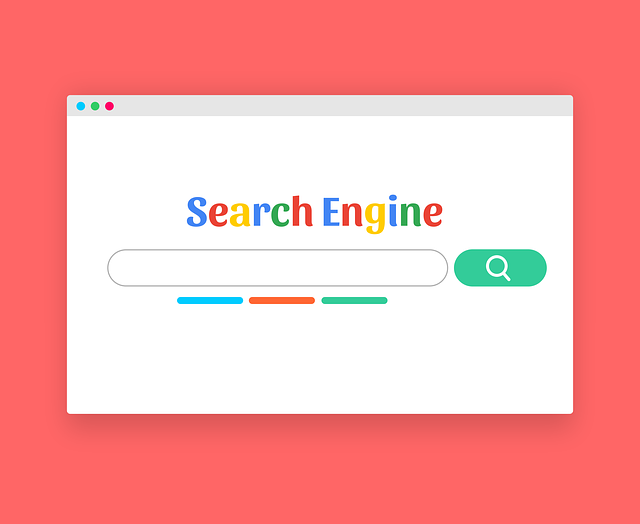The e-commerce search engine landscape is undergoing a rapid transformation due to advancements in artificial intelligence (AI) and machine learning, with AI search emerging as a revolutionary game-changer. Modern platforms employ NLP to understand customer queries, enhancing the user experience and boosting sales conversions. AI-powered search engines streamline inventory navigation, making it easier for customers to find products while enabling businesses to manage their stores effectively. Key performance indicators (KPIs) for AI search focus on relevance, accuracy, and speed, with regular testing and iteration ensuring the model stays aligned with market trends and user preferences, ultimately driving higher conversion rates.
In today’s digital landscape, a robust e-commerce search engine is no longer an option—it’s essential. As online shopping grows, understanding and optimizing the complex world of AI search becomes crucial. This article delves into the dynamic e-commerce search engine landscape, exploring the transformative power of Artificial Intelligence (AI) in enhancing user experiences and boosting sales. We’ll uncover key features, best practices for implementation, and metrics to measure success, guiding you through the process of harnessing AI search for your e-commerce platform.
- Understanding the E-commerce Search Engine Landscape
- The Power of AI in E-commerce Search Optimization
- Key Features and Benefits of AI-Powered Search
- Implementing AI Search: Strategies and Best Practices
- Measuring Success: Evaluating AI E-commerce Search Performance
Understanding the E-commerce Search Engine Landscape

The e-commerce search engine landscape is a dynamic and ever-evolving field, driven by advancements in artificial intelligence (AI) and machine learning technologies. AI search for ecommerce has become a game-changer, transforming how online shoppers interact with product catalogs and how retailers optimize their digital storefronts. Modern e-commerce platforms are leveraging sophisticated algorithms to deliver more precise and contextually relevant search results, enhancing the user experience and boosting sales conversions.
In today’s digital era, AI-powered search engines have revolutionized the way customers navigate vast online inventories, making it easier for them to find exactly what they’re looking for. These search tools use natural language processing (NLP) to understand customer queries, taking into account synonyms, related products, and even unspoken intent. As a result, e-commerce businesses are better equipped to manage and grow their online stores, ensuring that the shopping process is seamless, efficient, and ultimately successful.
The Power of AI in E-commerce Search Optimization

In today’s digital era, AI is transforming every aspect of e-commerce, and its impact on search optimization is nothing short of revolutionary. Advanced artificial intelligence algorithms can analyze vast amounts of data in a fraction of the time it would take humans, allowing for more accurate and relevant search results. By understanding user intent behind queries, these algorithms can deliver products that not only match keywords but also align with individual preferences. This level of personalization enhances the overall shopping experience, encouraging customer satisfaction and loyalty.
The power of AI in e-commerce search extends beyond simple relevance. It enables intelligent matching between users’ searches and product attributes, factoring in historical data, user behavior patterns, and even seasonal trends. This capability ensures that when a customer types “ai search for ecommerce,” the results are not just about artificial intelligence but also tailored to their unique needs and interests. Such sophisticated AI-driven search mechanisms not only boost sales by increasing visibility and accessibility but also foster a deeper connection between brands and their online audiences.
Key Features and Benefits of AI-Powered Search

In today’s digital era, AI-powered search for ecommerce is transforming the way online shoppers interact with products. This advanced technology offers a multitude of benefits that significantly enhance user experience and drive sales. Key features like natural language processing (NLP) enable customers to ask questions and receive relevant results, mimicking human conversation. This intuitive approach ensures users get exactly what they’re looking for, even if they can’t pinpoint specific keywords.
Moreover, AI search algorithms can analyze vast amounts of product data in real-time, incorporating factors like customer reviews, ratings, and purchase history to provide personalized suggestions. This level of customization not only speeds up the shopping process but also increases the likelihood of conversions. By leveraging AI search for ecommerce, businesses can foster stronger relationships with their customers, ultimately revolutionizing the online shopping landscape.
Implementing AI Search: Strategies and Best Practices

Implementing AI search in an e-commerce platform can dramatically enhance user experience and drive sales. When considering AI search for ecommerce, start by understanding your target audience’s needs and behaviors. Utilize natural language processing (NLP) to interpret user queries as questions rather than keywords, enabling more relevant results. Machine learning algorithms should continuously learn from search patterns, improving accuracy over time.
Best practices include personalizing search results based on user history and preferences, providing suggestions during the typing process, and incorporating visual search options for products with unique characteristics. Ensure fast response times by optimizing data indexing and leveraging edge computing. Regularly update AI models to keep up with evolving language trends and product catalogs.
Measuring Success: Evaluating AI E-commerce Search Performance

Measuring success in an AI-driven e-commerce search engine is paramount to ensure its effectiveness and user satisfaction. Key performance indicators (KPIs) should include relevance, accuracy, and speed. Relevance refers to how well the search results align with user queries, demonstrating the AI’s ability to comprehend natural language and intent. Accuracy involves matching products or content accurately to the user’s search terms, minimizing false positives and negatives. Search speed is also critical; a fast response time enhances user experience, leading to higher conversion rates.
Evaluation methods should encompass both quantitative and qualitative approaches. Quantitative measures like click-through rate (CTR), conversion rate, and customer satisfaction scores provide tangible data. Qualitative assessments through user feedback and surveys offer insights into the AI search’s impact on user behavior and overall shopping experiences. Regular testing and iteration are essential to fine-tune the AI search model, ensuring it adapts to changing market trends and user preferences.
The evolution of e-commerce demands a sophisticated approach to search functionality, and AI search for e-commerce is revolutionizing this space. By harnessing the power of artificial intelligence, businesses can enhance user experiences, improve conversion rates, and stay ahead in a competitive market. The key lies in implementing AI search strategies that prioritize speed, accuracy, and personalization. With continuous optimization and performance evaluation, e-commerce platforms can offer users a seamless, efficient, and enjoyable shopping journey, ultimately driving business growth and success.
